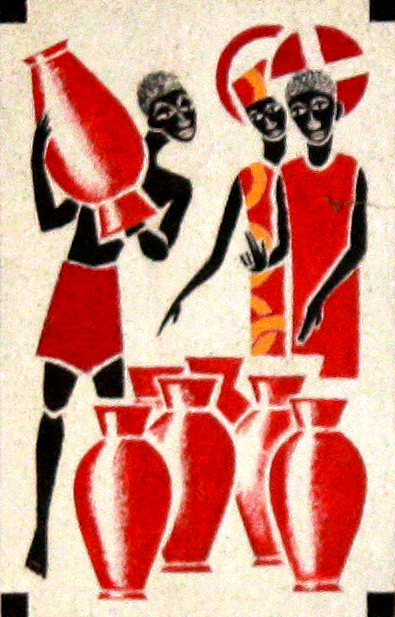 January 19, 2025
January 19, 2025
Second Sunday after the Epiphany
“Finding Joy”
Turning water into wine – wouldn’t that be a handy skill to have? You could put the Liquor Store out of business, and have a never-ending party. My Presbyterian ancestors, who no doubt strongly supported the 19th century Temperance Movement, would spin in their graves at the thought.
It doesn’t seem like a very pious act of Jesus, does it? Especially not as his very first miracle. Do you think he really wanted to kick into gear by becoming known as a party animal? In fact, most of his other miracles are about healing sick people. There are a handful of outliers – feeding the multitude, for example, or stilling the storm, or catching hundreds of fish – but on balance most of Jesus’ miraculous acts in the gospels are directed towards sick people. This one isn’t. And that’s strange.
My Presbyterian ancestors were certainly pretty judgmental about alcohol abuse. And no wonder – alcohol abuse was causing horrendous social issues in the 19th century. And it still does. The abuse of alcohol and other less socially acceptable substances still tears apart families, ruins lives, and leads to early death. It’s dangerous. Apparently now there are signs that it even causes cancer. Surely Jesus wasn’t promoting that!
On the other hand, some pious people in lots of different religions have frequently used food or drink restrictions as a spiritual discipline. Refraining from certain foods or drink isn’t limited to straight-laced Christians; every religion has sects that do that. The people who practice that way do indeed find doing that to be a way to connect to their spiritual longings – but there’s no religion in the world that demands those kinds of restrictions of all its adherents. In the first century, John the Baptist was known as someone who ate weird food (locusts and wild honey!); Jesus not so much. Jesus was accused by his detractors as “a glutton and a drunkard” because he spent so much time setting up dinner parties, and getting unlikely people around the same meal table.
Meals were certainly important to Jesus. We still eat together at our most holy moments, in remembrance of him. But for Jesus that wasn’t about having a wild party; it was about building community. It was about using gathering times as a way to deepen relationship. It was about ensuring that no one went without. It was about witnessing that life in all its fullness includes more than just the bare necessities of life. Life in all its fullness is about joy, fulfillment, and connection, as well as just getting basic nourishment.
So what if we consider this “water into wine” story as a sign of “life in all its fullness”, rather than just a flashy party trick? What if we see it as a sign of the way the world was meant to be: where God blesses our celebrations; where anxiety over scarcity evaporates; where human gatherings become times when divine presence is experienced. This isn’t about being drunk; it’s about being rich in all the things that make life more vibrant. In that way, this really is another healing miracle … addressing the “sicknesses” of scarcity, anxiety, loneliness. How many of us let those kinds of sicknesses limit joy? How many of us feel so trapped by scarcity, anxiety or loneliness, that we can’t see our way to even basic joys?
Join us on Sunday as we unpack this miracle, and consider how it might stand together with other healing stories as a witness to what the world under God’s rule was meant to be.

 forest hill
forest hill